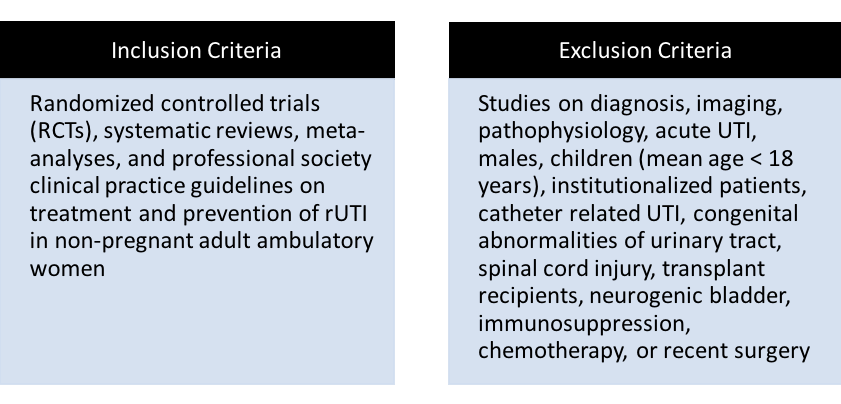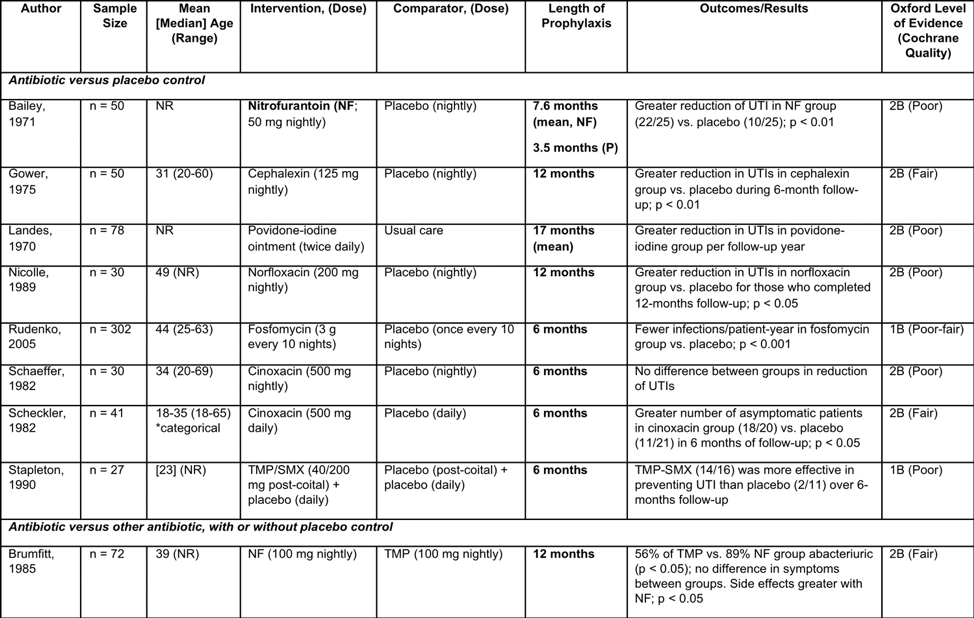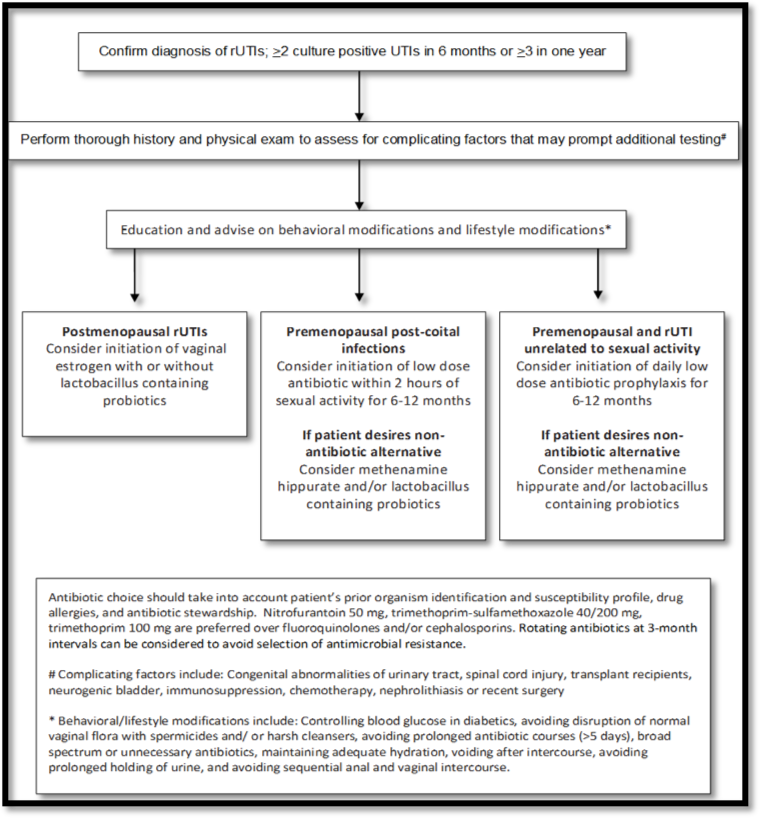Rapid, exhaustive literature search was performed using PubMed, EMBASE, Opus, Scopus, Google Scholar, The Cochrane Library, and the U.S. National Guideline Clearinghouse. Researchers abstracted data on rUTIs prevention techniques and treatment options to provide recommendations to the clinicians. Inclusion and exclusion criteria are reflected in Figure 1.

Figure 1
A total of 74 studies were included in the analysis. Researchers assessed study quality (poor to fair), antibiotic use, non-antimicrobial treatments, systemic reviews, and clinical practice guidelines. 19 randomized control trials on antibiotic prophylaxis were evaluated by the research team (Figure 2). While some studies showed a decrease in the number of rUTIs in antibiotic group compared to placebo or usual care, there was no lasting impact and high variability of results.

Figure 2
Dr. Ariana Smith reviewed non-antimicrobial treatment options for rUTIs. She reported that topical estrogen can be preventative in postmenopausal women, but there is also concern about side effects and effectiveness. Total of 6 randomized control trials on cranberry products were analyzed by the team. Majority of studies didn’t prove its’ efficacy and shouldn’t be recommended. Although vaccines are promising, they are not currently available. Limited evidence was found on the use of probiotics, methenamine hippurate, hyaluronic acid, acupuncture, herbal medicine, and D-mannose.
Presenters reported that current high-level data on rUTIs prevention and treatment are scarce. Study team recommended focussing on prevention strategies, which include educational, lifestyle, and behavioral modifications (Figure 3). Future research is essential to address gaps in knowledge and systematize treatment options.

Figure 3
Presented by Ariana Smith, MD, Associate Professor of Urology, Pelvic Medicine & Reconstructive Surgery, University of Pennsylvania
Co-Authors: Jason Brown, MS RN, Doctoral Student, Hillman Scholar in Innovation, University of Pennsylvania School of Nursing
Written by: Hanna Stambakio, BS, Clinical Research Coordinator, Division of Urology, University of Pennsylvania, @PennUrology at the 2018 ICS International Continence Society Meeting - August 28 - 31, 2018 – Philadelphia, PA USA


